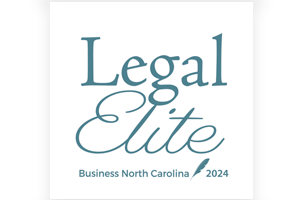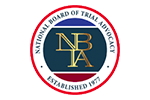YOUR LAWYERS.











Torts – Outline Part 4
Download the PDF version of this outline
- Negligent Emotional Distress Damages
- Applies in direct victim cases:
- Impact Rule
- D causes impact on P but no bodily injury
- Contact w person but no harm
- Doesn’t require a physical manifestation
- ALL jurisdictions allow this
- Can recover under other circumstances
- Zone of Danger
- Near miss situation
- Majority of jurisdictions would allow P to recover if mental distress manifests itself physically
- Emergence Rule
- Minority rule
- No impact, zone of danger, and mental distress not manifested physically
- Can recover if in circumstance of true mental distress
- Impact Rule
- Bystander Rule
- 3rd party witnesses something causing them mental distress
- General rule = no recovery
- However, can recover if:
- if related to party
- on scene when incident occurred
- suffering mental distress greater than normal
- However, can recover if:
Standard of Care
- The Reasonably Prudent Person
- Has normal intelligence
- Objective standard
- Not adjusted for any cognitive disabilities of D
- Mental health issues apply under this too
- Has normal experience, perception, memory, or knowledge
- Knowledge = starts at basic common knowledge and then based on community where D is
- Has all the additional skill or knowledge as the actual D (all the mental attributes)
- Takes on any positive additional attributes of D
- Unique knowledge or skill of D taken into account
- Has the physical attributes of the D himself
- Subjective standard
- Can be increased or diminished based on D’s physical condition
- Subjective standard
- Exemptions:
- Emergencies can apply
- What doesn’t apply:
- Mental illness
- Intoxication
- Children
- Taken into account; can be liable for negligence
- Age:
- Generally starting around 4-5 y/o
- Minority rule = rule of sevens
- Children under 7 y/o deemed incapable
- Age 18 = adult standard imposed
- Compared to children of similar age, intelligence, and experience
- Experience taken into account here; more than adults
- When engaged in an adult activity = held to the standard of care as a reasonable adult doing that activity
- Ex: driving
- Has normal intelligence
- The Professional
- Has additional specialized training
- Standard of care:
- Must possess + use the knowledge/skill common to members of the profession in good standing
- Still an objective standard
- Used as evidence:
- Understood through expert testimony
- Putting professionals on stand to explain the common practice specifically
- Doesn’t have to be professional = must only be an expert within their field
- Specialized knowledge + background
- Malpractice = Expert testimony must be from someone trained in the field
- Understood through expert testimony
Rules of Law (Negligence per se)
- Negligence as applied to a statute or rule of law
- Make sure to know where rule fits in the standard of care
- Outside of jury determination
- Application of a violation of statute
- Statute must apply to facts
- Consider:
- Is P a member of a protected class?
- Is the hazard one the legislature intended to protect against?
- Is it appropriate to impose tort liability for violations of statute?
- If case fails on any of these 3 requirements = NPC over
- If it passes on requirements = court can choose to use it
- Regular negligence (deviation from standard of care) charge can go forward even if this one fails
- Court isn’t required to use a criminal statute in a civil case
- However, the court has the ability to do so under certain circumstances
- Statute in question becomes something like a rule of law to be applied
- Reasonable care under the circumstances still applies
- Stachneiwicz
- Will use regulation as standard of care + means of statute if issue carries criminal penalty
- Osborne v. McMasters = pharmacist giving improperly labeled poison
- Licensing Statutes:
- Not used to establish a standard of care in NPC issues
- Must operate under reasonable care under the circumstances
- Can be held to standard of care of the professional whose activity D engaged in
- Safety statute:
- Court has tremendous amount of discretion in using a statute as a safety statute
- No obligation if issue is of first impression
- Can refuse of use it; choice of application
Res Ispa Loquitor
- Thing speaks for itself
- Negligence so clear that it will be inferred from the circumstances; an obvious situation
- Occurrence of the accident implies negligence
- What P must show:
- Not required to show direct evidence of D’s conduct/ how D behaved in connection w event
- 2 part test:
- Object causing harm was in exclusive control of D
- Not due to P’s own conduct
- Result would not occur commonly under standard of care; occurence is the product of negligence
- Object causing harm was in exclusive control of D
- Will need expert testimony
- Subject beyond expertise of the jury
- Has specialized knowledge or insight
- Proving damages:
- Usually monetary
- Ex: medical expenses, lost wages, pain + suffering, etc.
- Usually monetary
- Still must satisfy the other elements of negligence:
- Some foreseeability in breach of duty
- Cause in fact = essentially covered by RIL; just must prove that D’s negligence caused damages
- Requires inference of causation for proving the damages
- Medical malpractice = custom becomes the standard
- Don’t need expert testimony to prove negligence
- Locale = also an issue
- Would need to call expert from locale of issue to testify regarding common practice/standard
- The fact that an ideal outcome has not occurred isn’t always an indication of negligence
- Specialists = held to a higher standard
- From a standard of care to the standard of care of a specialist
- Must bring in another specialist of the same kind to testify on the standard
- If professional guaranteed outcome = not malpractice, but instead breach of contract
Defenses to Negligence:
- Contributory negligence (NC)
- Negligence committed by the P
- Complete bar to recovery
- Must be presented to jury
- Question of the P’s role
- If failure on the breach of duty argument, CN can be argued
- Often very much linked based on the facts of the case
Joint and Several Liability
- When two independent acts of negligence come together to cause a single harm, the injury is indivisible
- Where neither one acting alone would not have caused the injury, each tortfeasor is responsible for the entire amount of damages
- 3 ways to establish:
- Indivisible harm
- Acting in concert
- Vicarious liability
Strict Liability (Faultless Liability)
Neither intentional nor negligent but D still held responsible
Miscellaneous Notes
12(b)(6) = failure to state a claim
Prima facie = at face value
Contact Us
- Free Consultation
- 704-342-4357
Personal Injury Law
- Drunk Driver Accidents
- Car Accidents
- Passenger Injuries
- Rear End Collisions
- Subrogation and Insurance Issues
- Bicycle Accidents
- Negligence is not an Accident
- Are Recorded Statements Required?
- Carolina Commercial Vehicle Accidents
- Accidents with Police Cars and Ambulances
- Contributory Negligence in North Carolina
- Discovery Sanctions
Client Reviews
I am so fortunate to have had Bill Powers on my case. Upon our first meeting, Bill insisted that through the emotions of anger, sadness, confusion, and betrayal that I remain resilient. He was available to answer questions with researched, logical, truthful answers throughout our two-year stretch...
I contacted over 20 attorneys and Bill Powers was the only one that got back to me and was willing to help. He was kind and professional. He helped me get answers that I have been trying to get for years. I am so thankful for all his help and would recommend him easily. Simply FANTASTIC.
Bill Powers contacted me very shortly after I submitted an inquiry. He is incredibly knowledgeable about laws and all the requirements in North Carolina. When working with him, he patiently answered any and all questions I had in great detail. I always had the feeling he was looking to help ME, and...
Let Us Help You!
- 1 Over 28 Years of Experience
- 2 Results Oriented
- 3 We Will Fight for You

